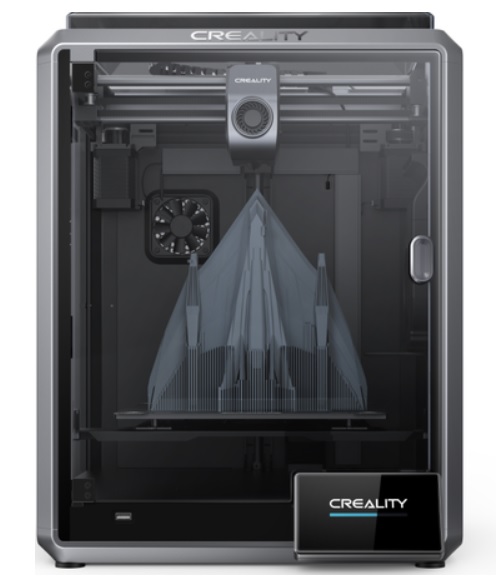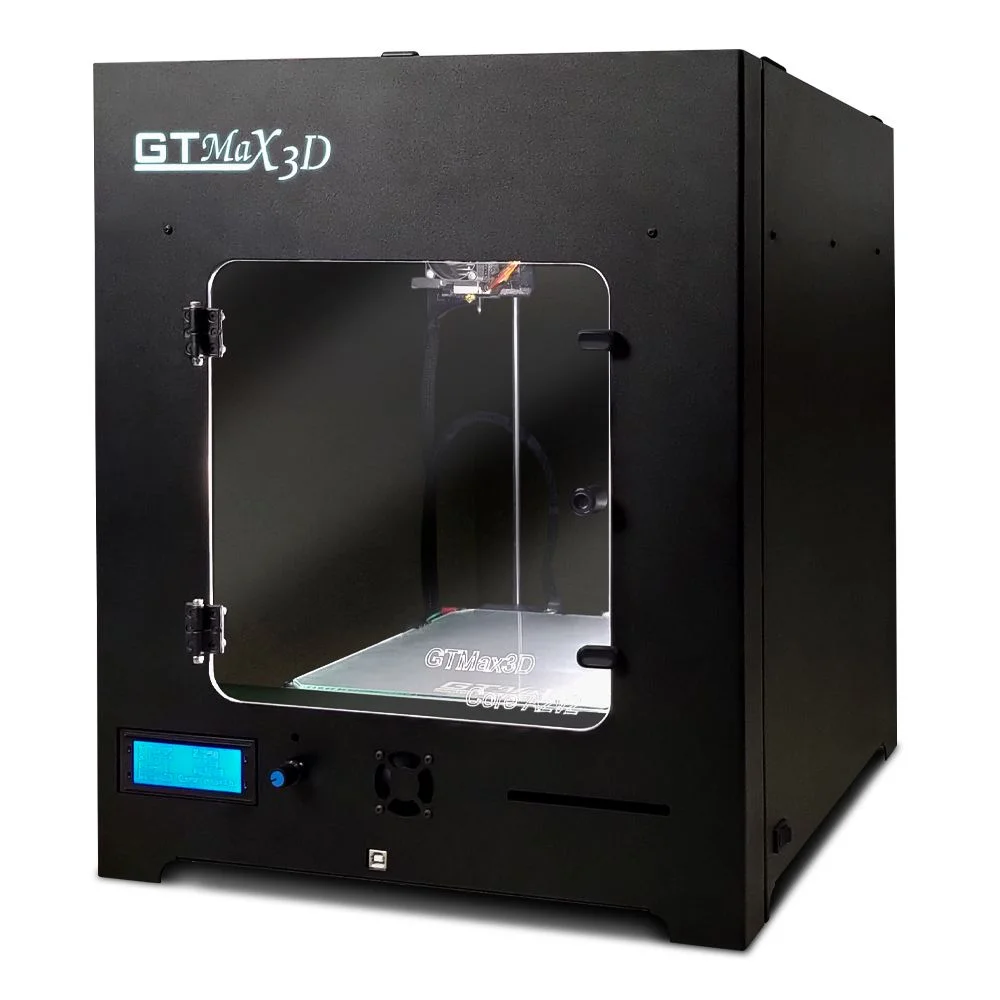Compare K1 vs Core A2V2
Comparison between the best 3D printers
Choose the best 3D printer at the best price. The cheapest 3D printers are here.
Buy a 3D printer here with 3D Fila.
 |
 |
|
| Model | K1[BUY K1] |
Core A2V2 |
| Printing Material | Filament | Filament |
| Buy Filament for Creality 3D K1 | Buy Filament forGTMax Core A2V2 | |
| Estimated price | $399,00 | $684,00 |
| Manufacturer | Creality 3D | GTMax |
| Release Year | 2023 | 2019 |
| Print Volume [mm] | 220x220x250 | 220x220x240 |
| Printer Size [mm] | 355x355x480 | 425x460x512 |
| Weight [kg] | 12,5 | |
| Power Loss Recovery | YES | YES |
| Enclosed printer | YES | YES |
| Bed Leveling | Automatic | |
| Filament End Sensor | YES | YES |
| Bed type | Heated | Heated |
| Power supply system | Direct Drive | Bowden |
| Standard nozzle | 0,4 | 0,4 |
| Maximum Nozzle Temperature [°C] | 300 | 295 |
| Maximum Bed Temperature [°C] | 120 | 135 |
| Maximum printing speed [mm/s] | 600 | 150 |
| Filament holder | YES | YES |
| Camera for supervision | YES | YES |
| Recommended filaments | ABS, PLA, PETG, PET, TPU, PA, ABS, ASA, PC, PLA-CF, PA-CF, PET-CF | PLA, PETG, Tritan, Flex, ABS |
| Recommended slicers | Creality Print; Cura, Simplify3D e PrusaSlicer | Cura, Simplify, Slic3r, IdeaMaker |
| Maximum Resolution [mm] | 0,1 | 0,05 |
| Processor | ||
| Display | Display touchscreen 4,3'' | Mono |
| Power Supply | 110/220V / 350W | |
| Connectivity | Ethernet / USB / Wi-Fi | SD / USB |
| Operating systems | Windows, Mac, Linux | Windows, Mac, Linux |
| Date of registration in the system | 2023-04-17 | 2022-11-12 |
| Release date | 2023 | 2019 |
| Extra features | The K1 is an extremely fast FDM 3D printer, reaching 600mm/s, 12 times faster than standard models. Equipped with a Core XY system and lightweight print head, it offers energy efficiency and high print quality. It stands out for its dual-gear extruder and quickly heated hotend, as well as dual cooling to prevent warping. Its robust structure ensures stability at high speed, with optimized software to speed up the printing process. | The GTMax3D ProCore A2v2 is a compact and robust 3D printer with a printing area of ??220 x 220 x 240 mm. It offers high print quality, ranging from 0.05 mm to 0.32 mm. Its features include automatic filament detection and changing, travel speed of up to 300 mm/s, and a heated aluminum bed with a glass top. It has automatic bed leveling with 16 points and an all-metal hotend that reaches up to 298°C. The printer has a carbon steel frame with electrostatic painting, is automatic bivolt and has connectivity via USB and SD card. The Bowden system and core xy kinematics complete its advanced features. |
| Support for multiple colors and materials (AMS and CFS) | NO | NO |
Notes * |
||
| Cost-benefit | 7 / 10 | 6 / 10 |
| Hardware | 4.2 / 10 | 2.5 / 10 |
| Tela | . | . |
| Print volume | 3 / 10 | 3 / 10 |
| Performance | 5 / 10 | 1 / 10 |
| [BUY K1] |
Conclusion |
| In conclusion, both the Creality 3D K1 and the GTMax Core A2V2 present compelling features for prospective buyers of 3D printers, but they target different user needs and preferences. The Creality 3D K1, released in 2023, stands out for its high-speed printing capabilities, achieving speeds of up to 600 mm/s, which is significantly faster than the 150 mm/s offered by the GTMax Core A2V2. Additionally, the K1’s automatic bed leveling, lightweight print head, and advanced cooling system cater well to users who prioritize efficiency and high print quality in their projects. While the GTMax Core A2V2, having been on the market since 2019, offers solid performance with a high level of print resolution and reliable components, it falls short in terms of speed compared to its newer competitor. However, its robust construction and features like a heated aluminum bed and extensive leveling points may appeal to users who prioritize stability and precision for detailed prints. From a cost-benefit perspective, the K1 provides greater value for those looking for high performance at a lower price point, particularly for users who plan to engage in more demanding printing tasks. The Core A2V2 may still attract those who prefer a more established printer with proven reliability, but it may not offer the same level of performance relative to its higher price. Ultimately, users should consider their specific requirements—whether speed and modern features are the priority, which would favor the K1, or if reliability and precision are more crucial, potentially leaning toward the Core A2V2. |

